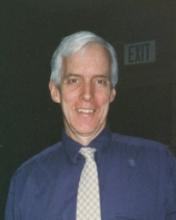The UW English Department mourns the passing of Professor Emeritus Charles Frey. Dr. Frey’s official obituary and remembrances from his close colleagues Professors John Griffith and William Streitberger are reprinted below.
Charles Hubbard Frey, 87, Professor emeritus at the University of Washington, in Seattle, died on February 15, 2023. He is survived by his wife, Roxanne Bartlett, three daughters--Emily Kendal Frey, Madeleine Starbuck Frey, and Elinor Hubbard Frey--and by three siblings--Alice Frey Emerson, Richard Frey, and Susan Frey. Charlie’s elder brother Alexander (“Sandy”) Hamilton Frey, Jr., died on July 14, 2013.
Born on May 15, 1935, in Philadelphia, Charlie, the third of five children parented by Alice Hubbard Frey and Alexander Hamilton Frey, grew up in Radnor, Pennsylvania. He graduated from the Radnor High School (1953), Yale College (1957), and Harvard Law School (1960). In 1960, he enlisted in the National Guard and served six months on active duty and five and a half years in the active reserve. He joined the Philadelphia law firm, Stradley, Ronon, Stevens, and Young, in 1961 and left the firm in 1967 to enter the Yale Graduate School, from which he received a Ph.D. in English Literature in 1971.
Charlie married Susan Thornton, of Summit, New Jersey, on August 23, 1969, and they moved to Seattle in 1970 after Charlie was hired by the University of Washington Department of English to teach Shakespeare and other courses. Residing in the University district, Charlie and Susan raised their three daughters together until 1991, when Charlie and Susan divorced. Charlie moved to the Wedgwood neighborhood in Seattle, and on September 20, 2008, he and Roxanne Bartlett married.
Charlie taught at the University of Washington for thirty-five years. He loved teaching and was highly regarded by his students and colleagues. He published four books on Shakespeare, a textbook anthology of Children’s Literature in six editions (with his colleague, John Griffith), and book contributions and journal articles on Shakespeare and other authors. Charlie wrote poetry for years, and his poems appeared in many journals.
Charlie particularly revered his family and friends, whom he saw and communicated with regularly. He loved theater and film, singing, playing the piano, sports (especially tennis, table tennis, squash, and basketball), writing, reading, gardening, cooking, microscopes and telescopes, meditating, travel, and humor.
He was not for all time, but of an age.
_________________________________________________________________________________
Charlie and I were friends, colleagues and sometimes collaborators for more than fifty years. Once upon a time we team-taught a class in modern fiction, and we were co-editors of an anthology of classic children's literature. We and our families socialized. From all the angles these experiences provided, Charlie was first-rate. He was likable, respectable, often admirable. His east coast background, his degrees from Yale and Harvard--they were there to see, if you were paying attention; but he never flaunted them. He laughed when things were funny. His conversations had substance. And you could count on him; he was steadily the Charlie Frey you wanted him to be. He will not be forgotten.
John Griffith
__________________________________________________________________________________
Westron wynde when wyll thow blow
the smalle rayne downe can Rayne
Cryst yf my love were in my Armys
And I yn my bed Agayne.
The first conversation I ever had with Charlie was about his interest in the cultural resilience of this lyric, one that had caught the imagination of so many musicians from Taverner in the sixteenth- to Stravinsky in the twentieth-century and that had fascinated an impressively long string of A-list writers. It was one of Charlie’s favorite poems.
Charlie and I both taught Shakespeare classes here at UW for over thirty years. He was a good colleague and a good friend. Our shared interest in Shakespeare provided opportunities for many conversations. He often brought his lawyer’s sensibilities to bear in these discussions. On occasion he could give you the impression that you were on a witness stand. He had a genuine interest in how other people thought about virtually everything. He was affable, and personable. He loved life. He loved language. And he loved poetry.
… atque in perpetuum, frater, ave atque vale
Bill Streitberger
